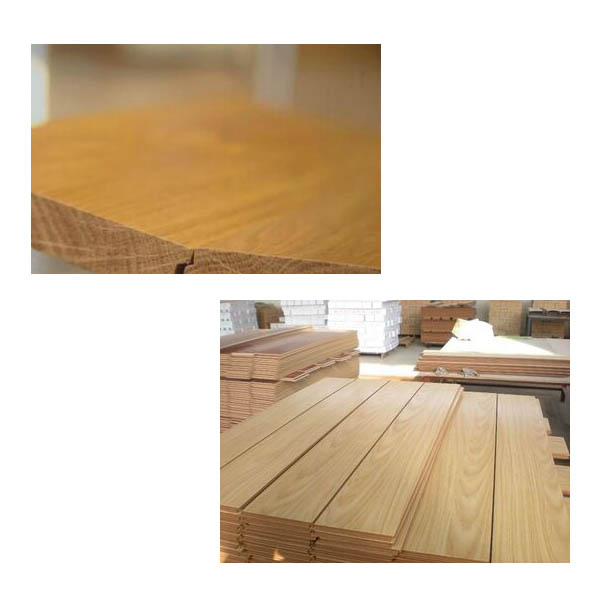Hot Bio Pesticide Herbicide Metsulfuron-Methyl
Many different species of wood are fabricated into wood flooring in two primary forms: plank and parquet. Hardwoods are typically much more durable than softwoods. Reclaimed lumber has a unique appearance and is used in green building. Engineered hardwood has a thin solid wood layer on top with a composite core. It can be a less expensive option than buying hardwood.
Luli Group Co., Ltd, the company goal is to provide high-quality flooring and environmentally-friendly products. We also use OSB because of its limited consumption of forest greenery.
Wood flooring we have:
1. Solid wood flooring:
Material: Poplar, eucalyptus, red oak, sapele, bintangor, rosewood, Bramante, teak, ribbed birch, black walnut, oak
Size: 910x122x18mm, 910x123x18mm, 910x127x18mm
Face: Uv lacquer
2. Laminate OSB flooring:
Material: OSB
Size: 910x122x18mm, 910x123x18mm, 910x127x18mm
Face/Back: Melamine paper with wear-resisting layer
Surface type: Soft finish, glossy finish, matte finish and so on
Glue: MDI( Zero Formaldehyde)
Wood Flooring,Waterproof Flooring,Plank Flooring,Vinyl Flooring Luli Group Co.,Ltd. , https://www.plywoods.nl
Metsulfuron-methyl Specifications
1. It is a systemic compound with foliar and soil activity, and it works rapidly after it is takenup by the plant.
2. Its mode of action is by hnhibiting cell dividion in the shoots and roots of the plant, and it is
Biologically active at low use rates.
Metsulfuron-methyl Application:
(1) Metsulfuron-Methyl 60% WP and 60% WDG is a residual sulfonylurea compound used as a selective pre-and postemergennce herbicide for broadleaf weeds and some annual grassed.
(2) Metsulfuron-Methyl is a systemic compound with foliar and soil activity.
(3) Metsulfuron-Methyl works rapidly after it is taken up by the plant.
(4) Metsulfuron-Methyl mode of action is by hnhibiting cell dividion in the shoots and roots of the plant, and it is biologically active at low use rates
Biochemistry Branched chain amino acid synthesis (ALS or AHAS) inhibitor. Acts by inhibiting biosynthesis of the essential amino acids valine and isoleucine, hence stopping cell division and plant growth. Selectivity derives from rapid metabolism in the crop. Susceptible plants cease growth almost immediately after post-emergence treatment, and are killed in 7-21 days. Surfactants increase the activity of metsulfuron-methyl on certain broad-leaved weeds. Uses Metsulfuron-methyl controls a wide range of annual and perennial broad-leaved weeds in wheat, barley, rice and oats, by either pre- or post-emergence application, at 4-7.5 g/ha post-emergence.
Metsulfuron-methyl is Widely applied in wheat, barley, oat and corn to control broad-leaf weed and grass.
Metsulfuron-methyl Specifications
1. It is a systemic compound with foliar and soil activity, and it works rapidly after it is takenup by the plant.
2. Its mode of action is by hnhibiting cell dividion in the shoots and roots of the plant, and it is
Biologically active at low use rates.
Metsulfuron-methyl Application:
(1) Metsulfuron-Methyl 60% WP and 60% WDG is a residual sulfonylurea compound used as a selective pre-and postemergennce herbicide for broadleaf weeds and some annual grassed.
(2) Metsulfuron-Methyl is a systemic compound with foliar and soil activity.
(3) Metsulfuron-Methyl works rapidly after it is taken up by the plant.
(4) Metsulfuron-Methyl mode of action is by hnhibiting cell dividion in the shoots and roots of the plant, and it is biologically active at low use rates
Biochemistry Branched chain amino acid synthesis (ALS or AHAS) inhibitor. Acts by inhibiting biosynthesis of the essential amino acids valine and isoleucine, hence stopping cell division and plant growth. Selectivity derives from rapid metabolism in the crop. Susceptible plants cease growth almost immediately after post-emergence treatment, and are killed in 7-21 days. Surfactants increase the activity of metsulfuron-methyl on certain broad-leaved weeds. Uses Metsulfuron-methyl controls a wide range of annual and perennial broad-leaved weeds in wheat, barley, rice and oats, by either pre- or post-emergence application, at 4-7.5 g/ha post-emergence.

